
In Hollywood, the path to career success often takes unexpected turns.
Just ask John Hoffman. At the moment, the New York-born writer rides high on the success of the comedy series Only Murders in the Building, a show he created alongside comedy legend Steve Martin. New episodes air on Tuesdays on Hulu.
Only Murders in the Building follows a trifecta of true-crime podcast enthusiasts (played by Martin, Selena Gomez and Martin Short) who stumble upon a murder in their New York apartment building. The three can’t resist starting their own investigation along with a corresponding podcast as they flail from one clue to the next. Then, when a chance discovery points to one of the three as a killer and ties in with organized crime, the three unlikely friends find themselves in way over their heads.
As a writer, Hoffman scored an Emmy nomination for writing for the Academy Awards in 2009 and contributed scripts to the shows Looking and Grace & Frankie. He also began his career as an actor, appearing on the Disney kids show Adventures in Wonderland in the role of the Mad Hatter throughout the 1990s.
How about we take this to the next level?
Our newsletter is like a refreshing cocktail (or mocktail) of LGBTQ+ entertainment and pop culture, served up with a side of eye-candy.
Queerty snuck time with Hoffman to chat about his unorthodox career, the new hit show, and life as an openly gay man in Hollywood. Only Murders in the Building streams new episodes every Tuesday on Hulu.
So I’ve seen the first eight episodes, and I’m all in on this series. How did you and Steve get hooked up on this one?
It was the greatest invite ever in the history of invites. I got invited by Dan Fogelman and Jess Rosenthal. Jess runs Dan’s company. They met with Steve Martin that had this idea. I sparked to it immediately. I’d be stupid not to. So I pitched a lot of thoughts that came really quickly—always a good sign. There was also a more personal connection that goes into darker territory. But it tied into my own experience of diving into a mystery that I was obsessed with.

Ok.
All of that led to dinner with Steve Martin. I asked him “Can we include podcasts?” and “Can you do a podcast with the trio?” So we all had a mind-meld over this dinner. And he was incredibly open and generous and just wanted to run with it.
Am I allowed to ask about your darker, personal connection?
Sure. It was one of these things. I grew up in Ohio, and my very close friend growing up and I parted ways in our 20s, right around the time of my coming out actually. It didn’t feel final at the time, we were just on different paths. I was going to California, and he was going to be a doctor on the East Coast. So our brother relationship fractured at that moment. We never talked again.
Sure.
And this comes into Only Murders through Mabel’s story—not having known anything of Tim’s life for 10 years, and she finds herself in this situation [involving his murder]. So suddenly about a year before I met with Dan, I was in the throes of trying to understand—after not talking to my close friend from childhood—learning that he died in a murder/suicide.
Oh dear Lord.
Yes. It was in Wisconsin. And I didn’t know anything about his life. Never before have I ever been so compelled. I’m not a murder-mystery person, but I couldn’t stop myself. I had to understand what was going on. The injuries, in this case, would lead you to believe my friend had shot someone and killed himself. From childhood, there was no way I could believe that. I also found out he had an ex-wife and two kids. So I went to Wisconsin and met his kids and ex-wife. By the end of that year of exploring and understanding what his life had become, the case did affirm my gut feeling. He did not murder and kill himself. He actually was murdered and the other person shot themselves.
Wow.
So I was in the midst of that, which is not comedy-oriented. But then to jump into a project like this—we had Steve & Marty, so we knew it would be funny. Then we put the wild card of Selena with them, and underneath it all we’re doing this murder-mystery, and we have to honor that from a lot of different angles for it to be good. And the funny comes from the real.

Indeed.
So I had recognized throughout a year of my exploring this thing about my friend that there were a lot of funny things that happened. I was meeting his kids after not seeing him for all these years at the age he was when we first met. So it was a bit like meeting him again. And we laughed—they needed to laugh. We had moments in the midst of all of this traumatic stuff that also allowed us to open up and be funny and connect, much like the show does.
I wasn’t expecting you to tell me that. It’s amazing.
It’s a big deal. Dan Fogelman said I need to pitch the show to Hulu when I pitched the show to Steve. I said “They’ll kick me out of the room. They’ll think it’s a huge drama.” And he said “No, there has to be a soul.” And he was 100% right. Everyone was very embracing of the reality of it, this story hitting fans of true crime smack in the face. It’s like, in our [most recent] episode, Steve’s character declares “Every true crime is true for someone.” It’s just hitting him.
That brings to mind another question. One element of this show is the weird appreciation of true crime podcasts and documentaries, and yet the show also understands how perverse that kind of entertainment is. Have we gone too far in obsessing over them? How do you go about making a show where true crime fans won’t feel insulted watching it, but it also might make them reflect on their entertainment tastes?
That’s a perfect way to put it. You know, when we talk about it, I was coming from a place of that mix for myself. I didn’t want to exploit [my friend’s death], but there was a part of me that recognized it was not a story in Wisconsin. I thought there was more to that story that people should know.
Of course.
I wanted to know for myself. I felt a certain sense of honoring him through it. We loved Steve Martin movies growing up—it was something we shared as friends. So it was like I can incorporate this. And with Steve—he was more about the actual steps toward solving a crime, and how to intellectually go about that. There is also a redemptive quality to that: if you can solve a mystery that frees someone who is wrongfully accused, or pointing the finger at the [real perpetrator] and understanding more about it. All those things are redemptive. That also goes to the search for truth, which is reflective of the times we’re living in.
Certainly.
And if getting to the truth of something can pull people together—well, I was excited about that for the show as well.
Absolutely. So you and Steve co-created and wrote the series. Steve, by the way, is a fine writer with movies like Shopgirl and LA Story, or his Broadway work. Tell me about working with him. How does that collaboration dynamic work?
I don’t think I’m being unfair. He’s said this as well. When he joined on to do this, it was his idea—three people who don’t know each other [solving a murder]. It was like a treatment he’d put together of the idea of the show. When he decided to act in it, he handed over the reins of the writing to myself, Jess and Dan as well. So we just put a room together. I was responsible for the script work in our brilliant writer’s room, and keeping in constant check with Steve about what was being brought up. With people that are legends like Steve and Marty, I just had their voices in my head from decades of watching and repeating them. There was that underneath it, but I had to check with Steve and Marty to make sure it was in their wheelhouse. That was a nice part—finding the rhythm of them as a pair.

That’s wonderful.
I remember the moment I introduced the idea of heightened touches, a la Bugs Bunny and Porky Pig haunting Steve in episode four. Things like that which are part of the texture of the show are inspired by Steve’s writing. And he would be clear as a bell about this wouldn’t happen; this would happen. I would get one-sentence emails from Steve Martin with either one-sentence ideas, or one sentence I don’t believe this would happen. I still have all of them, I love them. One day I want to make a collection of them. They’re genius.
Release it as a coffee table book. It’s so funny—the show has a queer writer, you. Queer actors. And it very much has a queer, silly, campy sensibility. And with Martin Short’s character—he has an ex-wife, but is very flamboyant. Is Martin’s character a coded gay?
It’s so funny. The tone of the show is New York. Walk ten blocks in New York, and you’ll get hit by something that makes you laugh. You’ll get hit by some gorgeous piece of architecture. And you’ll get scared by something, or intrigued by something. Or there will be some big, brassy Broadway number in the middle of the street. So I wanted to throw all of New York into the character of the show.
Related: Lindsay Lohan Gets Bombed, Selena Gomez Bathes In Justin Bieber’s Tears & More!
Very cool.
For the character of Oliver, I was a theatre major and had a very theatrical television experience. I knew a lot of Olivers. Many were gay, some were not. I saw Oliver as a fabulist. I think a sort of bon vivant a la Martin Short who is the ultimate dinner party guest. Any dinner party event—it’s well known in Hollywood—you’re making a grave error to not have Martin Short at your table. Tom Hanks has mentioned that very famously. I wanted to tie into some of that. This guy has lived many years. Will we touch on various stories of Oliver that will not suprise us—relationships he’s had? I wouldn’t close the door on that.
Awesome.
I want to be true to that part of it. And a big part of Season 2 deals with his family. I like going a little bit more unexpected. There is an energy about him that could go a lot of different ways.
I will say the scene that made me laugh the hardest—and it’s also really sad and moving for some reason—was Oliver recalling the night his career ended doing Splash: The Musical. All these divers drop to the stage to sustain horrible injuries, which is awful. But the image of that is also hilarious. And in a post Spider-Man: Turn off the Dark world, it’s not that far from reality.
That is true. That was a little bit of an inspiration, and also Cirque du Soleil in Vegas. O. It has a rising-lowering pool, and that terrified me. And with that monologue, God, there are times Selena, Marty, Steve, interpret this material, and I can’t believe the performances they’re giving. It’s like seeing it anew. Marty’s utterly brilliant in it.
And like I say, oddly moving.
That’s my wheelhouse.
It was not until I started researching this interview that I realized you’re also the Mad Hatter.
You’ve gone right there already.
Couldn’t wait. I’ve been thinking about it all day.
Oh my God. When did you find that out? Last couple days? Last hour? Or was it something you knew?

I grew up with it. I was a bit too old for Adventures in Wonderland, but my brother watched it a lot. It wasn’t until I started researching you that I was like no way. He’s a great writer AND was the Mad Hatter?
It’s an interesting world. I have said many times to people: my resume may not make sense. It doesn’t make sense to me all the time in many ways, but that is one of the highlights of my career that I love and am incredibly proud of. I love the people involved in that show so much. It’s hysterical to me to watch people react to that.
Cultural touchstone man. But I don’t want to get sidetracked. It’s interesting to me that your writing career really takes off at the same time of your last on-camera appearance. Did you make a conscious choice to transition into writing?
You know, I kind of did. It was presented to me on a sliver platter. Northern Lights, the movie with Diane Keaton that I was in, was thrilling. It originally sold to Hollywood Pictures, and they offered me a two-picture deal. Then I got shaken into someone is paying me to write, I should try to write. I learned screenwriting through this lovely situation and found myself decent at screenwriting. In a sense, that was always my thing: telling stories. As an actor, I was doing that. Northern Lights started out as a play, a one-man play I performed in New York and Los Angeles, all eight parts. So I actually originated the role played by Diane Keaton.
That’s hilarious.
I can proudly say that. That all tied in. The last time I acted, my friend Lisa Kron who wrote Fun Home wrote a play. The first play she did on Broadway was called Well, and it starred her and Jayne Houdyshell, who plays Bunny in Only Murders. I was in Well on Broadway ten years after not acting because Lisa said come do the play. So I did have that, but I’ll tell you, if you’re going to wait 10 years to act, it might be wise to do it somewhere other than Broadway. I was terrified.
[Laughter]
But it worked out fine, and that was the last thing I did. But I think all of this is part of the way Only Murders is told. There is this theatrical energy, or I hope there is.
For sure. Tell me about being an openly gay man in the business. Did you feel pressure to stay in the closet because you were on a children’s show?
It’s nice to talk about that. I’ve not been asked that at all.
Really?
I’ve thought about it, and I have had discussions. You know who I talked to it about? My dear friend Jonathan Groff.
Oh, sure.
We just hit it off on Looking. And a connecting point was Adventures in Wonderland. We’d been working two months together and at some point, I said I was on the show. Jonathan’s jaw dropped. He started screaming “You’re the Mad Hatter!” He had no idea.
That’s amazing.
It’s funny, because the producers and the art directors on Adventures in Wonderland were also on Pee Wee’s Playhouse which became our style guide in a weird way. And of course, Paul Reubens had his whole story.
Sure.
But it’s funny, it never came up on set. There were other gay actors on that show, and yet it never came up. It was never present in our minds. I’ll tell you—once it did. I don’t know if this was just in my mind, but after Adventures in Wonderland I was cast on a show called Fortune Hunter. It was a sort of James Bond thing on Fox. I was a series regular with Mark Frankel, who has since passed away. Lovely guy.
Ok.
I was his Q, his sidekick who watches him go through his adventures from home base. I would work my computer because he had a contact lens that was a camera. So I’d sit in front of a screen, including at the end of the day when he was ready to bed some beautiful woman. There was a lot of that on this show.

Naturally.
There was a moment they made it clear they [didn’t know I was gay] when they cast me. The show was struggling, so I was let go from the show after 10 or 11 episodes. I mean, the show never aired beyond five episodes, but they said “We want to replace you.” And I, in my mind, thought they found out I’m gay. And that was a way of telling themselves it wasn’t working: because I had to ogle all these women on the show because it was James Bond. So that was fun. And I did wonder about things like that. It may or may not be the case at all. I was not an actor who came on board and said “I’m the gay guy,” but I didn’t withhold it either. At the time, I often wondered if they didn’t feel like I wish we’d known that before.
Eew.
It was icky.
That is gross. Do you feel like that’s changed?
I think it’s an ongoing evolution of how we deal with the community in every way. We see that all the time: the attachments to labeling, typing, and what that means. He’s an out-gay actor. He’s playing a straight character. What does that mean? Will we have a problem? That still comes up here and there, I’m sure. But has it changed? I hope so. I believe so. I have seen that trajectory. And certainly, behind the scenes, it’s only been seen as an asset. Pitching Only Murders with Steve Martin by my side, and all of Hulu there to hear that, sharing this personal story of mine that tied in with my being a gay person certainly didn’t impede us whatsoever. They leaned in and listened.
Do you miss acting?
Good question. I would never say no. But there’s such joy I get from telling a story and watching actors live it. I also want to honor anyone who is only an actor—I don’t want to take their part.
So you’ve already alluded to Season 2. Will it be Steve, Martin and Selena again?
Yes, our dream trio. But you will see why. You will see them again, they are coming back. Season 2 is bigger and better than ever. We start shooting by the end of the year.
Only Murders in the Building streams new episodes every Tuesday on Hulu.
https://youtu.be/-V1rQdXXXyI
Don't forget to share:



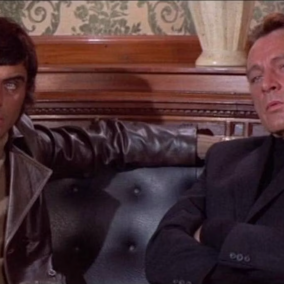
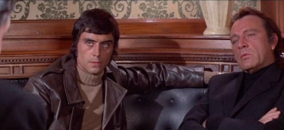
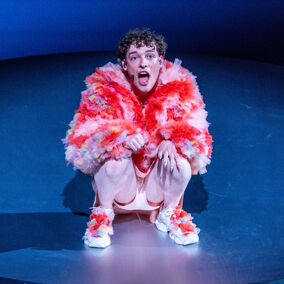
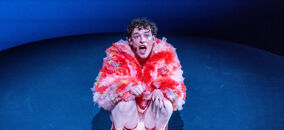
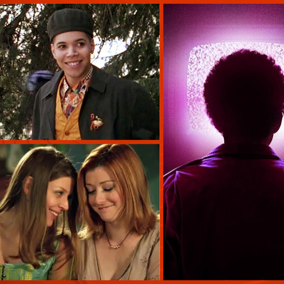
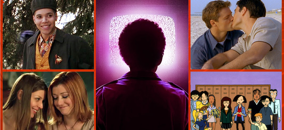
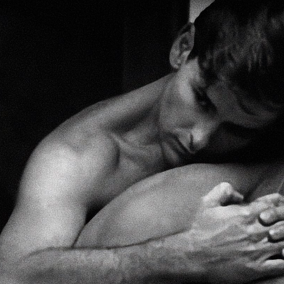
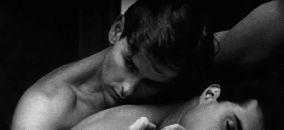
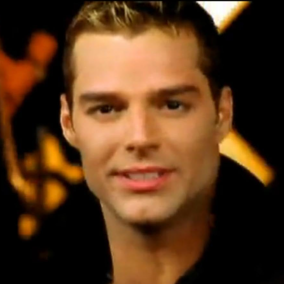
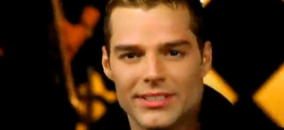
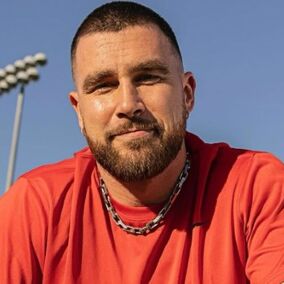
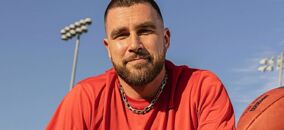
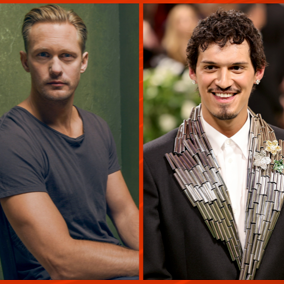
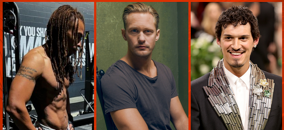
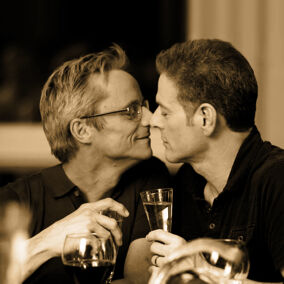
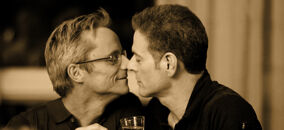
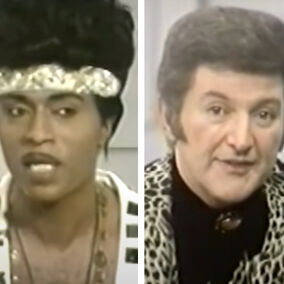
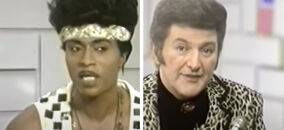
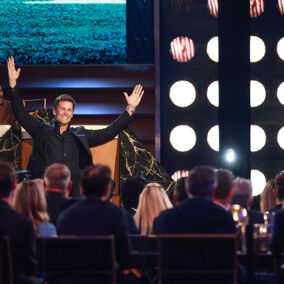

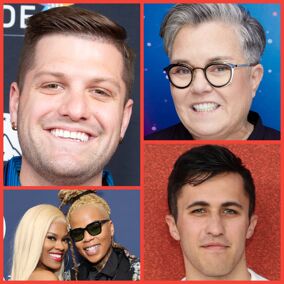
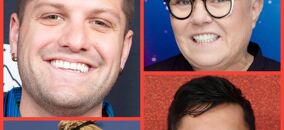
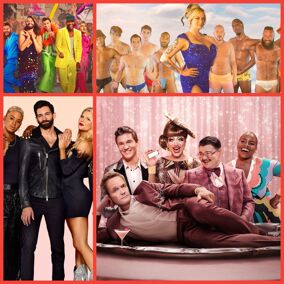
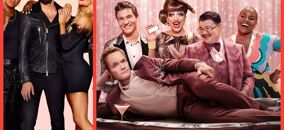

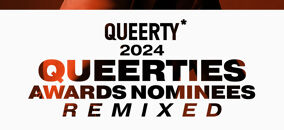
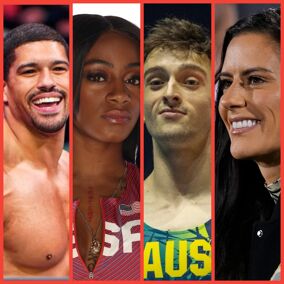
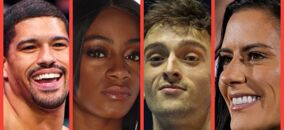
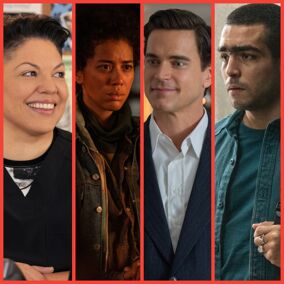
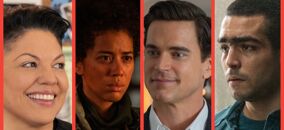
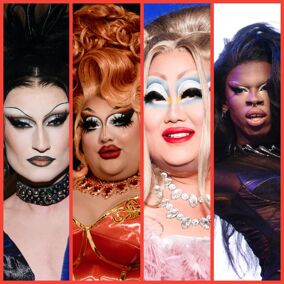
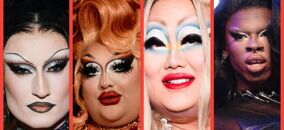
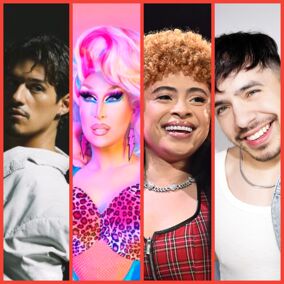

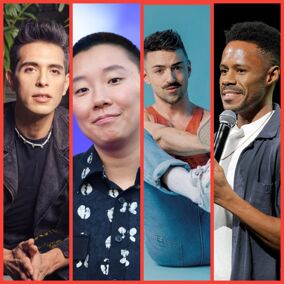
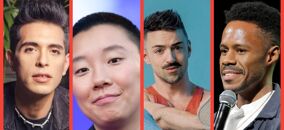
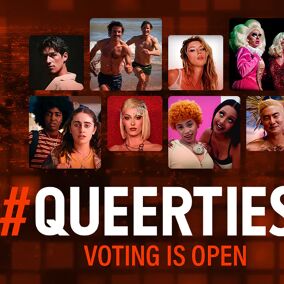
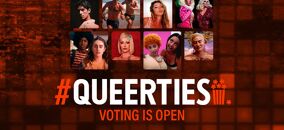
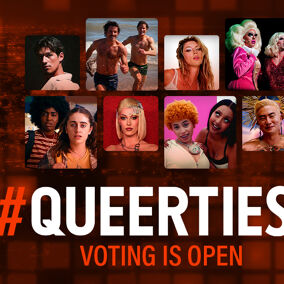
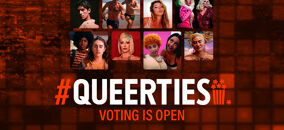
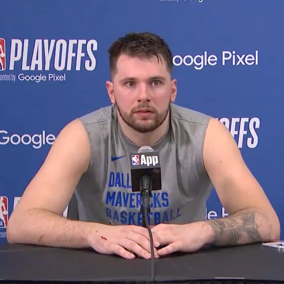
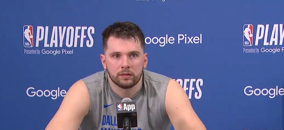
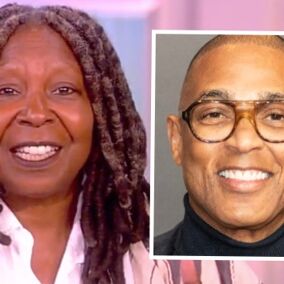
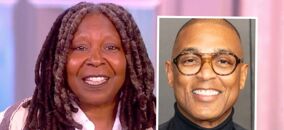
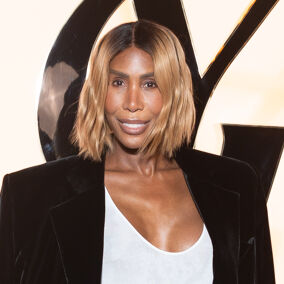
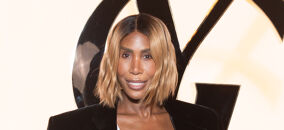
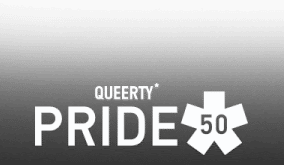

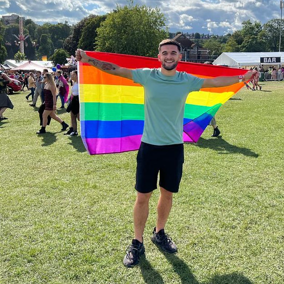
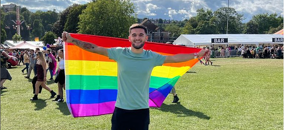
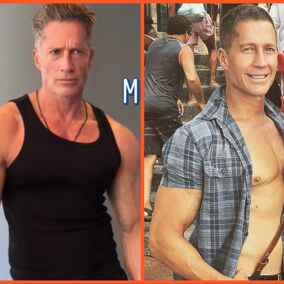
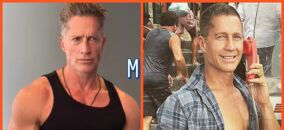







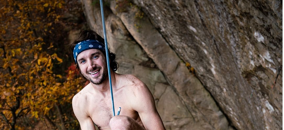


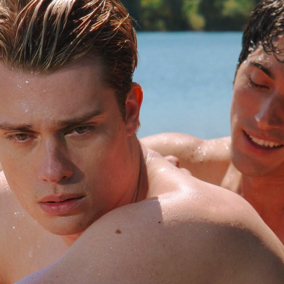

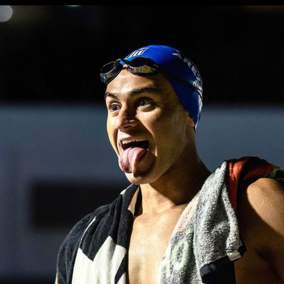
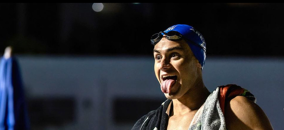
Essie
I’ve tried watching that show but don’t like it very much. I do like the actors, not Selena, she seems “off” a bit. Maybe I’ll give it another try. It worked with “Schitt’s Creek.” Seeing Nathan Lane is in it might make it an easier watch for me. I LOVE him!!
nm4047
the saying that I think applies to this show, is ‘you can’t make a silk purse from a pigs ear’. The show just isn’t that worthy. Can have the biggest ensemble but is the story isn’t grabbing early in the piece, you won’t hold long term.
Paulie P
The how is great. Well written and the characters are all perfect. The dry humor is everywhere and if you don’t appriciate that then the show is not for you. The funeral scene alone is worth it.
Russian Blue
I was not ready to enjoy this series as much as I have. Of course, growing up with Steve Martin and Martin Short, you have to appreciate the old school humor. I thought Selena Gomez was an odd choice for casting but she has fit the bill quite well. She is dry, dark, and cynical…exactly what her character needs. Nathan Lane is a bonus. Don’t pooh-pooh this series until you give it a try. It’s a comical dive into NYC life and not without merit.
Steve Martin and Martin Short also did a recent special together and if you’re fans, check it out.